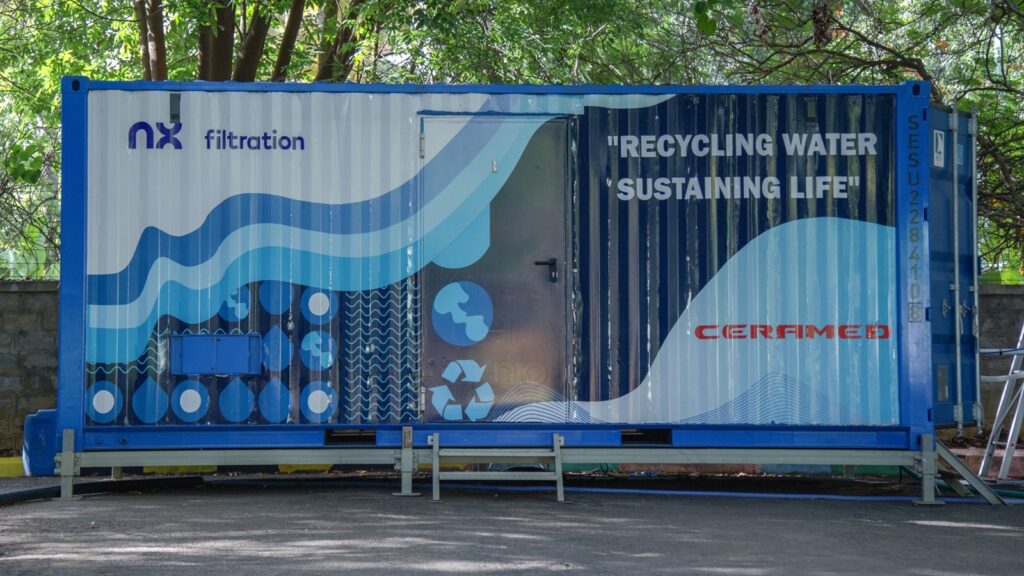Bengaluru-based Ceramed Engineers will establish a full-scale municipal water recycling plant using direct nanofiltration (DNF) technology in partnership with the Bangalore Water Supply and Sewerage Board (BWSSB), the company said.
The project, currently in its validation phase, will treat sewage water from one of the BWSSB’s sewage treatment plants and upgrade it for reuse in applications such as HVAC (heating , ventilation, air conditioning) cooling systems and construction. The plant is expected to achieve a recovery rate of 85 per cent treated water with just 15 per cent reject, making it one of the most efficient solutions in the sector, according to the engineering firm.
This development follows the success of a pilot plant at Lalbagh, where Ceramed has been running a 1,000-litres-per-hour system since March. The fully automated unit, which provides real-time monitoring and remote operation, has been demonstrating the viability of recycling secondary-treated sewage water into high-quality water.
“Since, the project is under its validation phase, we are yet to make the STP (sewage treatment plant) location public. Our technology converts conventionally treated sewage into water that meets potable standards. While India is currently prioritising non-drinking applications, our membrane can deliver water comparable to drinking quality,” said Philip Vincent, Director (Tech and Process), Ceramed Engineers.
At the heart of this initiative is the company’s partnership with the Netherlands-based NX Filtration, a global leader in membrane filtration. NX’s patented DNF technology is in operation across Mexico, Indonesia, Vietnam, and Europe for municipal sewage recycling, industrial reuse, and surface water treatment.
The DNF membranes, engineered with a unique hollow fibre polymeric design, are capable of removing heavy metals, pesticides, PFAS (polyfluoroalkyl substances), bacteria, viruses, active pharmaceutical ingredients (APIs) and microplastics—contaminants that conventional systems often struggle to address. They also operate at significantly lower energy consumption and with zero chemical usage.
Ceramed sees immense potential for its technology in India, where water scarcity is intensifying and cities are grappling with rising demand. “Nearly 80 per cent of urban water usage is for non-contact purposes such as flushing, car washing, and HVAC. Recycled sewage water can easily substitute this, saving vast amounts of freshwater,” Vincent explained.
Story continues below this ad
On the industrial side, Ceramed said it has already deployed the same technology for effluent recycling in die-casting, aluminum anodisation, and bearing manufacturing units.
According to the engineering firm, a 34-million-litres-per-day plant in Mexico already uses DNF technology to convert sewage into drinking water. In India, however, the immediate focus remains on secondary reuse across industries and municipalities.
“This is not just about treating wastewater—it is about making cities future-ready by ensuring every drop is reused efficiently,” Vincent said.
“The technology is on par with conventional systems like ultrafiltration in terms of capital expenditure. Output capacity may be about 20 per cent lower than conventional systems at the same cost. However, the operational costs are much lower than competitors, making it more economical over the long term,” added Vincent.

